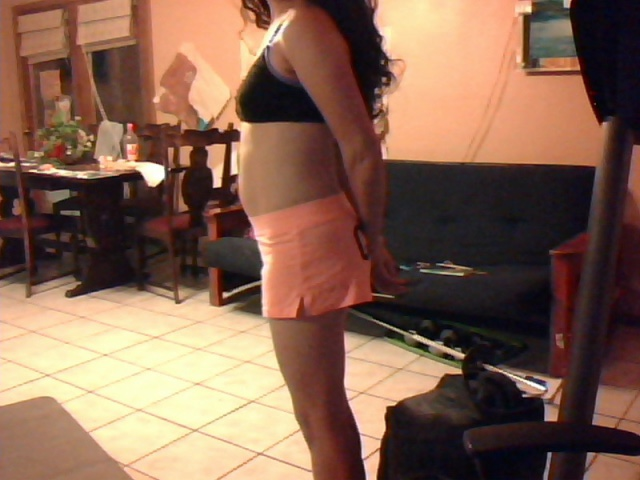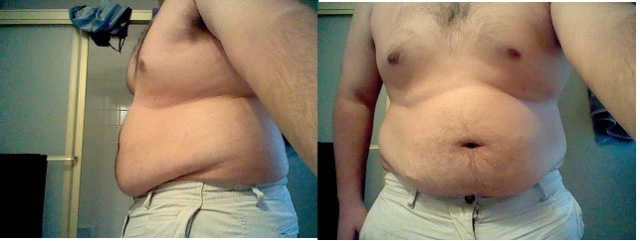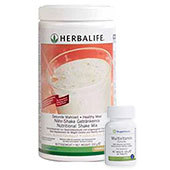Dieting and Excercise
Question
Dr. McLaughlin---
About one year ago I had lost about 35 lbs in three months by doing excessive excercising and intense calorie cuts. I usually worked out everyday, if not every other day. I was able to keep the weight off up until about 2 months ago. I noticed I started gaining weight back. This was due to not excercising as much because of college and scheduling. I have gained about 15 lbs back so far and I am disgusted everytime i see my body. I've had self-conscious issues for a LONG time. anyways, I just didnt take as good care of myself and ate whatever i wanted and now the weight is coming back on. I do not want to gain any more weight and I just need some advice on what to do. I do not want to go back to starving myself everyday and excercising everyday so that I feel worn out all the time. School takes up a lot of time, too, so i cant work out EVERY day. I want to lose about 30 more lbs total and tone up and gain lean muscle. But i dont like going to public gyms to lift weight and i cant hire a personal trainer or buy those expensive home gym sets. What should I do? What should I eat? Please help me. Also, I am 18years old and I used to be overweight. I am 5'10" and weight 165 lbs. I used to weight about 190 lbs before and I noticed my skin was a bit saggy/soft from the fat i used to have. I do not know if I have stretched skin, but I want to know if I can tone it back nice and tight. How can I do this, if i can? What is ur opinion?
Thank You,
Mauricio.
Hi Mauricio,
First, I want to reassure you that you don't need any expensive equipment in order to exercise effectively. Doing strength training is very important for weight loss and maintenance. You want to build your lean body mass (muscle mass) up because muscle tissue burns significantly more calories than other body tissue, even at rest, increasing your metabolic rate. You can exercise at home with some inexpensive dumbbells and a stability ball. I would recommend 2-3 strength training sessions per week. Some good resources to get you started are _Sculpt Your Body with Balls and Bands_ by Denise Austin (this one might look "girly" but trust me, it's effective exercise!) and _Weight Training for Dummies_ by Suzanne Schlosberg
and Liz Neporent.
You also need to do some kind of cardiovascular exercise to burn off body fat, but you don't need to do it at a gym! Walking is the most basic exercise, doesn't need any fancy equipment, and can be fit into even the most busy schedule (see tip # 9 below). Also, you can check a freecycle group in your community for exercise equipment like a stair stepper or rowing machine (go to www.freecycle.org to locate a local group).
Here are some of my other tips for healthy weight loss:
1. Think 揾ealthy food? not calories!
Counting calories is not an effective long term strategy for promoting
weight loss or maintaining a healthy weight. Instead, focus on choosing
foods that are low on processing and high in nutrients such as vitamins,
minerals, and dietary fibre most of the time.
2. Get Enough Calcium!
Scientific research has demonstrated that dietary calcium plays a role in
weight control. Calcium helps to regular fat storage and promotes fat loss
in the abdominal area.
Eating about 1000 mg of calcium per day (from food, not supplements),
equates to the burning of about 100 more calories of body fat per day (or
about 10 pounds of fat per year!)
Choose 8 servings from the following list to meet your daily goal:
?cup calcium fortified orange juice
?cup fortified tomato juice
1 cup cooked or 2 cups raw greens (e.g. kale, collard greens, broccoli)
?cup cow's milk, soy milk, or yogurt
?oz cheese
?cup calcium-set tofu
?cup almonds
2 tbsp almond butter or sesame tahini
?cup soy nuts
1 oz calcium-fortified breakfast cereal
Although 8 servings sounds like a lot, many of the serving sizes are quite
small. For example, if you include ?cup of fortified orange juice as well
as ?cup milk on cereal at breakfast, 1.5 oz of cheese on your sandwich at
lunch, 1 cup of milk with supper, and ?cup of yogurt plus ?cup of
almonds for a snack, you've gotten in 8 servings!
3. Eat breakfast
About 40 percent of adults skip breakfast at least 4 times per week. Don't
be one of them! Research has demonstrated that breakfast skippers weigh
more than breakfast eaters. People who eat breakfast actually consume
fewer calories by the end of the day than breakfast skippers. If you are
pressed for time in the morning, or don't feel up to eating right after
you get up, pack a portable breakfast (e.g. muffin or cereal bar, fruit
cup or fresh fruit, yogurt) and nibble throughout the morning.
4. Eat the RIGHT kind of carbs
Yes, carbs have been elevated to dietary demon status lately - but they
shouldn't be. Your body needs carbohydrates to function properly. The key
is to choose the right types of carbs. Steer clear of overprocessed foods
like white bread, and increase your intake of healthy whole grains,
fruits, and vegetables. One key benefit of healthy carbs is that they
contain fibre, which helps you to feel full, so you don't overeat.
Good choices include:
Breads and baked goods made with whole grain flours, such as whole wheat,
oats, or rye
Whole grain breakfast cereals, like Raisin Bran, Corn Bran, or Cheerios
Brown rice, couscous, barley, kamut, or millet
Fresh, frozen or canned fruits or vegetables
Legumes such as lentils, split peas, chickpeas, black beans, or baked
beans
5. Beware of "Snackwell's Syndrome"
Due to the focus on low fat diets, many people have forgotten that
calories count too! Just because a food is low in fat does not mean it is
low in calories (often fat is replaced with more sugar). So even when
consuming lower-fat versions of foods, continue to monitor your portion
sizes!
6. Include adequate amounts of protein and fat
While it is not necessary (or even healthful) to consume a high-protein
diet to promote weight loss, including adequate protein in your diet is
important. Consuming protein foods at each meal will help you to feel
satisfied for longer. Small amounts of fat can have the same effect ?just
choose healthy fats like olive or canola oil, or the fat naturally present
in foods such as nuts or avocadoes.
7. Avoid 搎uick fixes?br>
Although potions and pills may promise miracles, they will not deliver
lasting results. You did not gain weight overnight, and you can't take it
off overnight either! Studies show that people who lose weight quickly are
likely to gain it all back. Permanent weight loss takes place much more
slowly. Be patient and you will achieve your goal.
8. Set realistic goals
A safe rate of weight loss is 0.5 to 2 lbs per week. So, once you have
determined your target weight, set a realistic time frame to get to your
goal weight.
9. Get moving!
Regular physical activity is absolutely essential to promoting and
maintaining weight loss. Much research has shown that individuals who
commit to regular exercise are the ones most likely to maintain weight
loss.
If the thought of physical activity intimidates you or makes you cringe, a
great way to start is by purchasing a pedometer and using it daily.
A study of women aged 19-71 who walked 10,000 steps per day for 8 weeks,
found that nearly half of the women reported losing weight during the 8
week period.
A pedometer increases your awareness of your daily activity level. You can
purchase a basic one for about ten dollars. Start out by keeping track of
how many steps you are currently taking per day, then aim to add 1000-2000
steps per day until you hit 10,000. This is the equivalent of about 8 km
(5 miles). Squeeze in more steps by taking 5 to 10 minute walking breaks
several times throughout the day, taking the stairs instead of the
elevator, and walking to destinations less than 1 km away.
10. Practice 揺xtreme self care?br>
Taking good care of yourself is crucial to both your weight loss success
and your overall ability to live a satisfying life. Make sure to get
enough sleep, and treat yourself to what your body and spirit needs ?a
long, hot bath, a massage, or an evening curled up with a good book and a
hot cup of tea. You are worth it!
Regarding your "saggy" skin, it's difficult for me to say - if you have quite a bit of fat stored right under the skin, it might improve significantly as you lose weight (and you're still young so your skin still has a lot of elasticity to "spring back"). Sometimes skin will still be a bit "loose" after weight loss, though - it really depends on your own skin's elasticity which is very individual.
There are more resources and articles you might find helpful on my site, www.getfitwithkaren.com. There is also a no-cost fitness newsletter you can sign up for if you wish.
Hope that helps!
Karen
www.getfitwithkaren.com
- Prev:Weight Loss and Excercise
- Next:healthful eating
Related Articles
-
Diet Or Burn The Fat Feed The Muscle?
Questionhi i am starting a calorie diet of 1512 calories a day i
-
Calories and weight loss plateau
QuestionI am 52 and 139 pounds. My highest weight was 165 lbs. I
-
Hi, I have recently started...
QuestionHi, I have recently started weight training, as I want t
-
Weight loss and fair glowing skin.
QuestionHi Phil, I want to loose weight by 5 Kgs and want my ski
-
Supplemental vitamins
QuestionQUESTION: Im 21 years old, 59 and weight around 150-160 l
-
wheat allergy
Questionhi sir, IM RISHABH, AGE 15 FROM INDIA....................




